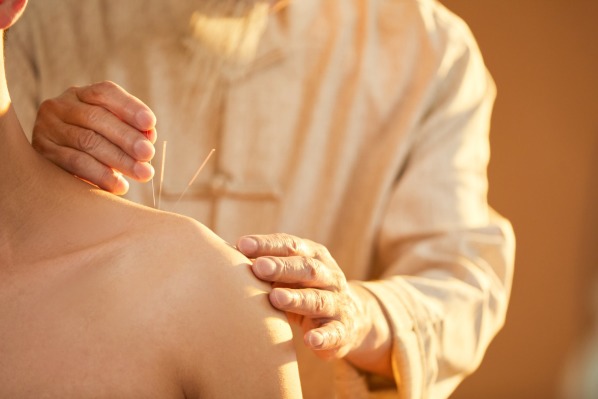
Photo/Shetuwang-501681029
With thin needles being inserted into certain acupoints, a cardiothoracic surgery began with the patient remaining fully conscious.
The scene is part of a documentary recently produced by Shanghai Media Group (SMG), which reveals how preoperative treatment with acupuncture, also known as acupuncture anesthesia, reduces the need for sedatives or pain relievers.
Focusing on the medical team of Zhou Jia, head of Yueyang Hospital of Integrated Traditional Chinese and Western Medicine, this documentary recorded the practical application of acupuncture anesthesia and its development.
Acupuncture anesthesia derives from Chinese acupuncture, an approach of treatment which dates back more than 2,000 years. It is based on traditional Chinese medicine (TCM) and entails stimulating certain parts of the body with a needle penetrating the skin to relieve symptoms.
Originated in Shanghai, acupuncture anesthesia was first applied in a tonsillectomy operation by Shanghai General Hospital in 1958. However, as the technology was still in its infancy at that time, this method did not win widespread recognition.
In 2001, Zhou, then a cardiologist at Renji Hospital Affiliated to Shanghai Jiaotong University School of Medicine, received a letter inquiring about a heart operation. The female patient, then 23, was reluctant to receive general anesthesia because both her mother and grandmother developed severe side effects after general anesthesia.
After intensive study, Zhou looked to acupuncture anesthesia, which he believed could be helpful. He visited many TCM doctors and learned to apply acupuncture anesthesia in open-chest operation.
Zhou's team further proposed a solution combining traditional Chinese acupuncture with western anesthesiology, and a standard specification to extend its application. The theory was later promoted and applied in many hospitals across Shanghai and won wide acceptance.
In 2005, a BBC documentary crew made a special trip to film acupuncture anesthesia in Shanghai. Under the camera, Zhou's team successfully completed an operation of percutaneous balloon mitral valvuloplasty without endotracheal intubation under acupuncture anesthesia. The acupuncture episode of the documentary, Alternative Medicine: The Evidence, was later broadcast worldwide.
The episode also caught the attention of French and German television organizations, some of which even came several times for interviews and shooting.
The latest SMG documentary, which was filmed between 2021 and 2022, further revealed the efficacy of acupuncture anesthesia. Doctors choose corresponding acupoints according to the patient's ailment, which can help relieve pain, reduce anxiety and protect the organs.
"With the coordinated effect of Chinese acupuncture and Western anesthetics, acupuncture anesthesia reduces the use of anesthetics. It can then reduce the possible damage to the patient's organs caused by a high-dose anesthetic and promote the patient's rapid recovery," said Zhou, who added that the technology can also play a role in the treatment of patients who are allergic to anesthesia or those with certain physical conditions which means administering general anesthesia is too risky.
To date, Zhou's team has completed tens of thousands of surgeries under acupuncture anesthesia, including more than 700 cardiopulmonary bypass heart surgeries and more than 800 thoracoscopic lung surgeries without endotracheal intubation.
Email: tanyuhan@nbd.com.cn


 川公网安备 51019002001991号
川公网安备 51019002001991号





